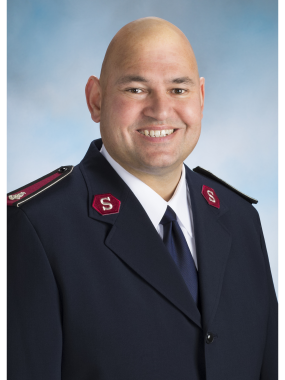 by Lt. Colonel Dan Jennings
by Lt. Colonel Dan Jennings
Territorial Secretary for Personnel
In my role as personnel secretary at territorial headquarters, I have given a great deal of thought to the concept of appointments and the sending of officers from one place to another. It is a practice that seems foreign to those outside of our organization. Why do we subject ourselves to it?
Every officer who receives a commission immediately is initiated into the practice. What makes it even more unique is that brand-new officers not only are sent but they are sent in a very public way. In the presence of an audience, individuals eagerly await the words spoken by their territorial leader: “You are appointed to…” Others who already are serving across the territory wonder each spring if the phone call will come for them to move from one place to the next.
It is not for the sake of tradition, or only practicality, that we put ourselves through this ritual. There is something deeply theological about the practice of sending. It begins with an acknowledgement that we serve a sending God. At the heart of missional theology is the understanding that God sends people God sent Adam and Eve into a freshly created world with the responsibility to manage and care for it.
God sent Abraham from the comfort and familiarity of home toward a land that would serve as a promised inheritance for the Lord’s people. God sent Noah to an epic redemptive mission that would give creation a second chance. God sent Moses from the wilderness of exile to the throne of the pharaoh to demand God’s people be set free. Jesus sent His disciples out into ever-growing concentric circles to share the Good News with their community, region and even to the ends of the earth. The Father and the Son have sent the Holy Spirit to guide the Church.
When God intends to do something of any significance in this world, He sends people. Often, they protest based on doubts about their ability or worthiness. However, Dutch theologian Henri Nouwen explains, “We are sent out to teach, to heal, to inspire, and to offer hope to the world—not as the exercise of our unique skill, but as the expression of our faith.”
It is God sending and our response in faith that connects us to this holy mission.




